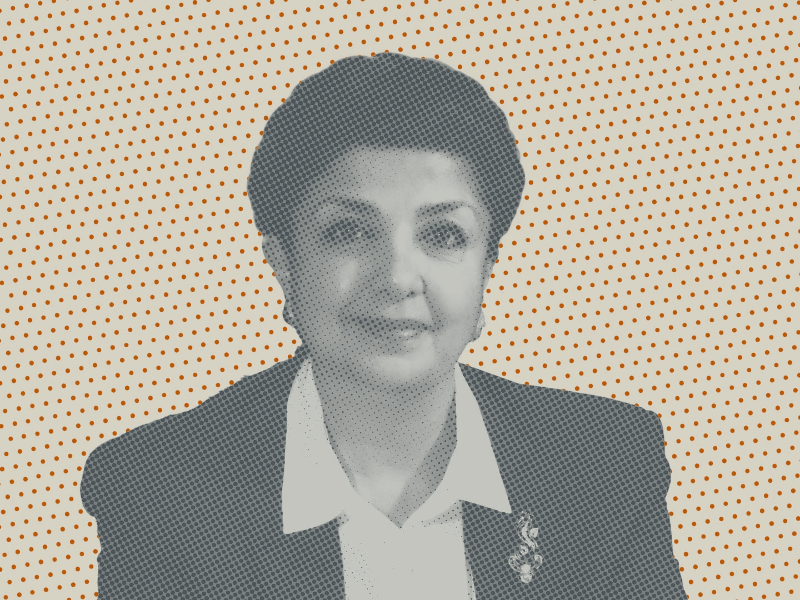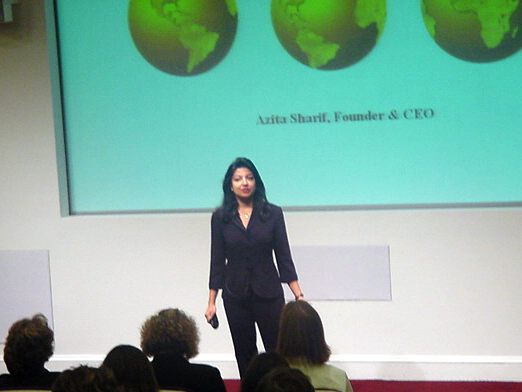
For two and a half years, fear and chaos defined Cockrell School alumna Azita Sharif’s daily reality as a teenager in the 1970s living through the Iranian Revolution — a revolution that led to a short civil war and a long, brutal international war with Iraq.
“When you go through such an intense experience, it changes you. It changes your perception. It’s not like reading it in the history books,” Sharif (B.S. ME 1987, M.S. ME 1989) said. “You wake up in the morning and your entire value system has been flipped upside down. You ask, ‘Why? Why me?’ But I knew I was given an opportunity, as difficult as it was. Because of that experience, I thrive in the midst of chaos.”
Sharif often shares the jaw-dropping story of how she survived a revolution, a civil war and an international war, eventually escaping from Iran on foot and immigrating to the United States at 15 years old with a bag in one hand and her younger brother’s hand in the other.
“It’s emotionally overwhelming. It teaches you that there is a lot of ambiguity in life,” Sharif said of the experience. “Things can change quickly. If you want to survive, you have to be flexible, agile and adaptable.”
Her story has shaped her philosophy of “creating norm out of chaos.” This mindset has proven successful throughout her education and career. After earning her mechanical engineering degrees from UT — a field she explored because of her childhood fascination with cars and the field’s range of career opportunities — she worked in the semiconductor industry as an R&D engineer before earning her MBA from Harvard and her M.A. in law and diplomacy from The Fletcher School at Tufts University, both in 2000.

Now a biotechnology engineer, executive and entrepreneur, she is the founder and CEO of DSI (Daedalus Software, Inc.) and BINDS (Biospecimen Inventory Network for Discovery Science), developing products focused on solutions for precision medicine/Integrated Health Records (IHR), research biobanking, discovery science and transplant surgical applications. She is also passionate about foreign affairs and business development.
“I’m driven by a desire to do the right thing and to do something that matters,” Sharif said. “It’s important to me that my time is allocated toward work I feel will make a difference, where the impact I make has the potential to outlast me.”
Sharif is dedicated to empowering leaders and hopes to inspire the next generation of leaders through her work. Although as a young girl she viewed her survival strategy of thriving in the midst of chaos as her greatest challenge, over time she has shifted her perspective to seeing her experience as a source of tremendous opportunity. Now, she is passionate about helping others flip their perspectives and turn their challenges into strengths.
“Perspective is crucial when faced with challenges. You have to be able to objectively look at a problem from all angles and take an educated risk,” Sharif said. “Leaders don’t blindly follow the path that is often taken but almost always take the path that is seldom, or never, taken. For example, when I speak with students who are struggling with adapting to a virtual learning environment in the pandemic, I tell them to use this opportunity to branch their efforts and minds in ways that a ‘normal’ life would not permit them. There is always a silver lining in any dark cloud. You just have to seek it. For me, I could look at my teenage years during the war as an insurmountable challenge, or I could look at it as a catalyst toward success. I chose, and choose, the latter.”
